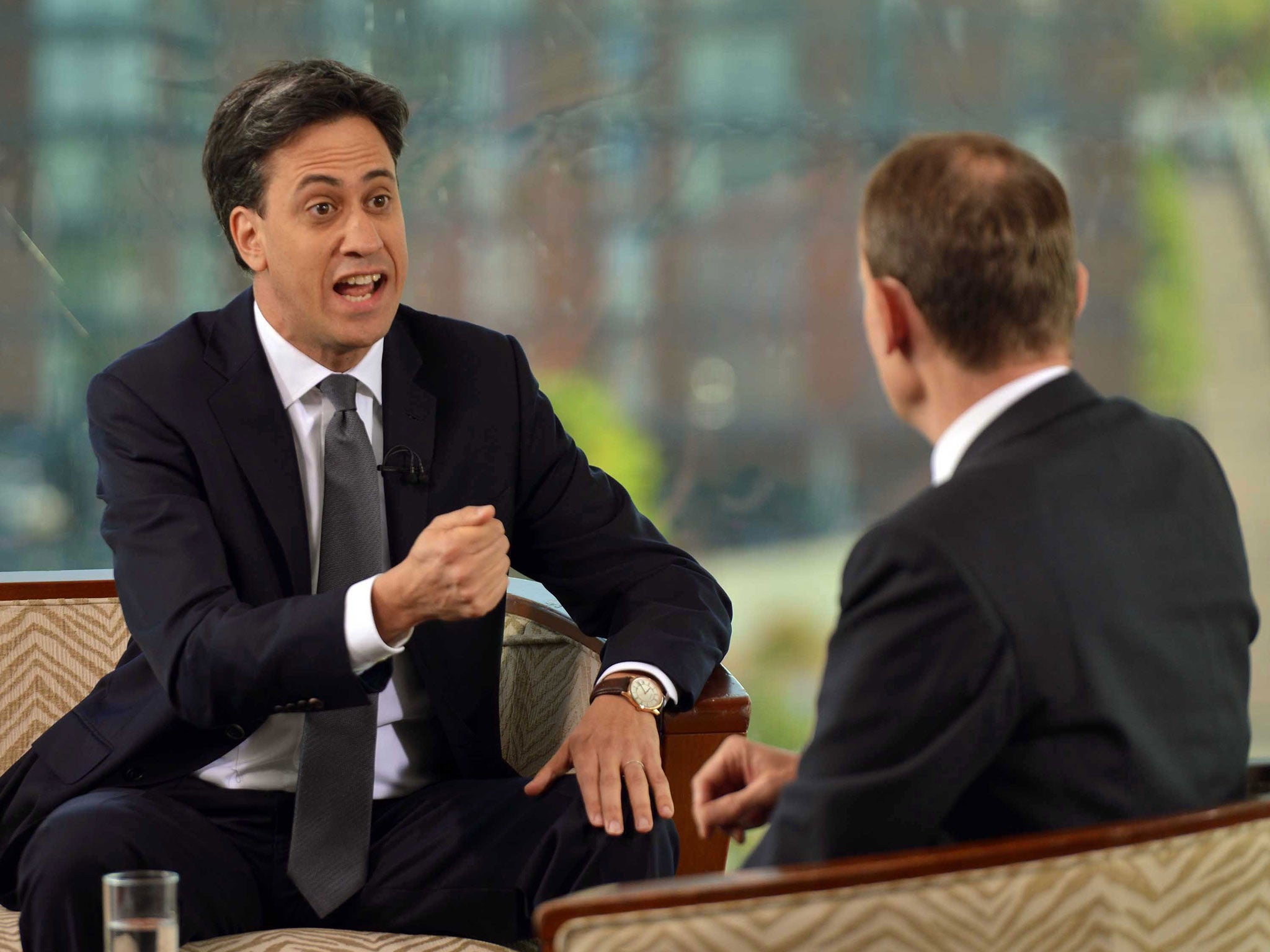Donald Macintyre's Sketch: Even a statesmanlike Ed Miliband has no answer to the West Lothian question
Miliband, in prime ministerial grey tie and white shirt, was emphatic. He was stern

The first words uttered to Andrew Marr by Ed Miliband on the BBC today were “Good to be with you”. Heaven forbid that the conference season should start with excessive questioning of party leaders’ sincerity, but was this accurate? For he surely knew the interview would be dominated by a question that, for Labour at least, is the most problematic since the riddle of the Sphinx.
Since the West Lothian question was first asked by a Scottish Labour MP, the great Tam Dalyell, when Ed was just seven, he’d had time to prepare for it. But unlike Oedipus with the Sphinx, Ed didn’t have that clear an answer when Marr asked it again today. And again.
Marr sensibly didn’t use the viewer-unfriendly phrase West Lothian question. But that’s what exactly what he meant when he asked: “Why should Scottish MPs be able to vote on taxes in England if English MPs aren’t able to vote on taxes in Scotland?” And “What is wrong with English votes for English laws?” This led to Mr Miliband saying: “There isn’t a simple answer to this question.”
Marr: Yes there is.” “No there isn’t” “I’m sorry, yes or no? It’s very straightforward.” “No, there isn’t a simple answer. Let me explain why.”
Which Mr Miliband, in prime ministerial grey tie and white shirt, tried to do. He was emphatic. He was stern. His frown was statesmanlike, particularly when pointing out that David Cameron’s linking of England with Scottish devolution was in conflict with William Hague’s statement that the two processes would be “in parallel”.
But That Question kept returning. “All these issues” should be solved in a post-election convention, not in a “fag packet” way. The answer was not to change “the centralised power in Westminster” but to “devolve power in England”. As for needing Scottish MPs to get English business through – “Labour has won majorities across the United Kingdom, we’ve won majorities in England too”. (Normally true, but possibly not if the election was ultra-tight.)
It was all very complicated. For instance “tuition fees in England” had “knock-on effects for Scotland” on public spending. Well, in chaos theory, the flap of a butterfly’s wings in Brazil can start a tornado in Texas. But that doesn’t entitle Texas rangers to storm into Brazil and gas all the butterflies. Or so his (mainly) Tory opponents will (no doubt unworthily) say.
The question that Mr Dalyell asked was: “For how long will English constituencies tolerate ... Honourable Members from Scotland, Wales and Northern Ireland exercising [a] ... probably often decisive, effect on English politics while they themselves have no say in the same matters in Scotland?” The subtext of Miliband’s answer seemed to be: “For as long as possible, we hope.”
Subscribe to Independent Premium to bookmark this article
Want to bookmark your favourite articles and stories to read or reference later? Start your Independent Premium subscription today.

Join our commenting forum
Join thought-provoking conversations, follow other Independent readers and see their replies